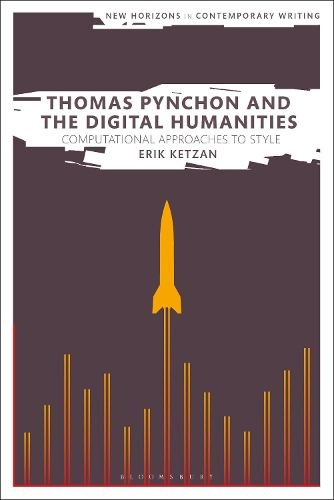
Thomas Pynchon and the Digital Humanities: Computational Approaches to Style
(Hardback)
Available Formats
Publishing Details
Thomas Pynchon and the Digital Humanities: Computational Approaches to Style
By (Author) Erik Ketzan
Bloomsbury Publishing PLC
Bloomsbury Academic
18th November 2021
United Kingdom
Classifications
Tertiary Education
Non Fiction
Literary studies: fiction, novelists and prose writers
Literary theory
813.54
Physical Properties
Hardback
288
Width 156mm, Height 234mm
581g
Description
Thomas Pynchons style has dazzled and bewildered readers and critics since the 1960s, and this book employs computational methods from the digital humanities to reveal heretofore unknown stylistic trends over the course of Pynchons career, as well as challenge critical assumptions regarding foregrounded and supposedly Pynchonesque stylistic features: ambiguity/vagueness, acronyms, ellipsis marks, profanity, and archaic stylistics in Mason & Dixon. As the first book-length stylistic or computational stylistic examination of Pynchons oeuvre, Thomas Pynchon and the Digital Humanities provides a groundwork of stylistic experiments and interpretations, with over 60 graphs and tables, presented in a manner in which both technical and non-technical audiences may follow.
Reviews
I'm just barely digitally-literate enough to recognize how ingenious Ketzans book is, and what an enormous amount of work has gone into it. You can count on these findings percolating through the Pynchon scholarship over the course of the next few years. I dont know whether this is a watershed moment in Pynchon scholarship, whatever that might mean, but Im sure that in future no-one will want to venture claims about Pynchons style without first checking to see what Ketzan has discovered. -- Brian McHale, Distinguished Arts and Humanities Professor of English, The Ohio State University, USA
Author Bio
Dr Erik Ketzan is a postdoctoral researcher at the University of Cologne, Department of Digital Humanities. Erik previously worked as an academic researcher at the Leibniz Institute for the German Language, then completed a PhD in English/Digital Humanities at Birkbeck, University of London.
